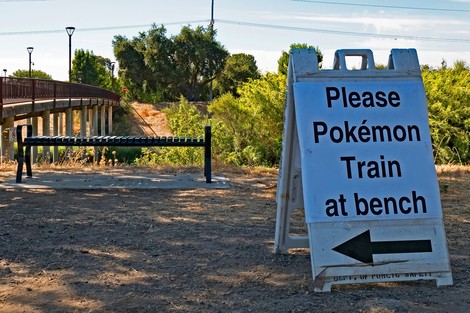Your podcast discovery platform
Curious minds select the most fascinating podcasts from around the world. Discover hand-piqd audio recommendations on your favorite topics.

piqer for: Global finds Technology and society Globalization and politics
Elvia Wilk is a writer and editor living in New York and Berlin, covering art, architecture, urbanism, and technology. She contributes to publications like Frieze, Artforum, e-flux, die Zeit, the Architectural Review, and Metropolis. She's currently a contributing editor at e-flux Journal and Rhizome.
The Advent Of the Pokémon Flaneur — How An Augmented Reality Game Changed The City
A flame so bright burns fast. Pokémon Go hysteria was a relatively short-lived phenomenon, but the game's effects on the way we understand the city through "cartographic fiction" will persist, says Andrew Knott. That’s not only because the incredibly popular game offered many their first experiences with augmented reality, but also because of the particular way it gamified public space by deconstructing boundaries such as those between public and private.
The Google project Nantic was responsible for Pokémon Go. The game harnesses data from Google Maps to create the game landscape “defined by monuments”, as Knott says. That is, places deemed notable by Google Maps and the algorithms and users that generate its information. “This forces us to question the game’s use of locations and data, and the ethics of re-appropriating spaces,” writes Knott.
There are countless stories illustrating this point, such as that of the Holocaust Museum in Washington DC, which had to ask for discontinuation of game play for reasons of “inappropriateness”. Stories like these point to a clash between the flattened stage-like quality of realspace-turned-gamespace and actual hierarchies and sensitivities pervading urban geography.
Because of its physical nature, this particular game got people moving together, encountering each other, and bridging the gap between augmented reality and bodily experience. In other words:
“It lends a new narrative to the act of walking, an unexpected benefit to getting lost. This is, perhaps, the equivalent of the dérive in the age of Google Maps.”
Pokémon Go gave us a hint of the radical ways that augmented reality will rewrite social norms in public spaces, “in as many ways as there are apps”.
Stay up to date – with a newsletter from your channel on Technology and society.
